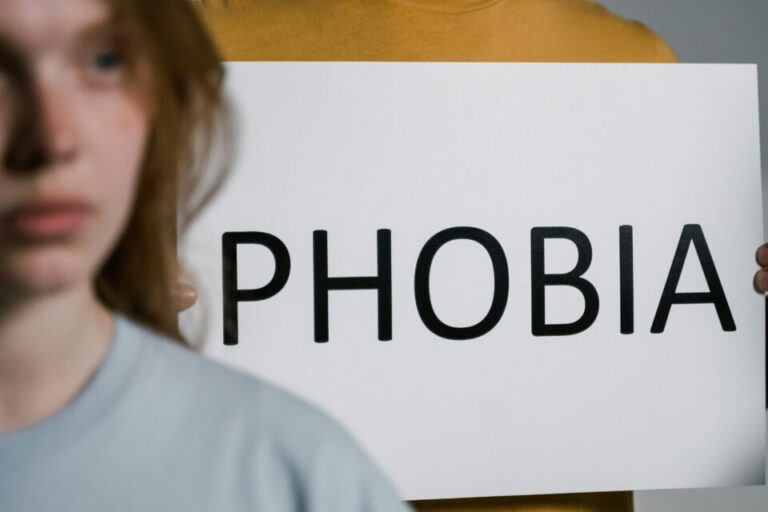We’ve heard of many kinds of phobias but what is kosmikophobia all about? Kosmikophobia refers to an irrational fear of cosmic occurrences.
Someone suffering from this illness might expect to feel a great deal of anxiety just thinking about cosmic phenomena, let alone viewing them.
Their anxiety may be so severe that they get a full-blown panic attack as a result. Although such an input of anxiety is not guaranteed for everyone suffering from kosmikophobia, it is nonetheless highly possible.
Someone suffering from kosmikophobia may experience a full-fledged panic attack, which includes an increased heart rate and breathing rate. Other symptoms include elevated blood pressure, muscle tension, shaking and profuse perspiration, among others.
Although panic attacks are not always the case for everyone suffering from kosmikophobia, they are nonetheless conceivable, especially if the symptoms are severe.
A person suffering from kosmikophobia may avoid what they fear. They may go so far as to prevent any exposure to cosmic phenomena.
For example, someone with this disease may refuse to look up at the night sky for fear of observing a cosmic phenomenon. Excessive concern and unreasonable thinking are likely to be among the primary causes of their mental distress.
Although someone with this condition may actively avoid their fear to reduce their chances of experiencing immediate anxiety, doing so may exacerbate their kosmikophobia symptoms in the long run because they are also justifying their fear to themselves by actively avoiding it.
Symptoms Of Kosmikophobia
Kosmikophobia, like almost every other phobia, is characterized by anxiety as the most noticeable symptom.
Furthermore, their anxiety may be so severe that they experience full-blown panic episodes as a result of it. Depending on the intensity of their panic attack, they may require hospitalization for some days.
However, this will vary from person to person and be determined by a variety of factors. Also, someone suffering from kosmikophobia may go to great lengths to avoid any interaction with their fear.
This may imply not just avoiding situations where they may come into contact with their fear but also actively attempting to prevent it from occurring by taking a more hands-on approach.
Below are some of the more prevalent signs of this phobia:
Symptoms may include:
- Anxiety
- Avoidance of cosmic phenomena
- Difficulty coping
- Muscle tension
- Shakiness
- Perspiration
- Possibility of panic attacks.
Causes of Kosmikophobia
There are no clear causes of kosmikophobia. Nonetheless, genetics and environment may play important roles in the development of this illness.
For example, if a person has a family history of mental illness, particularly anxiety disorders or specific phobias, they may be more likely to acquire kosmikophobia.
This could be because they are genetically predisposed to getting mental diseases in general. If someone possesses such DNA, it may just take a stressful occurrence for them to acquire full-blown kosmikophobia.
Essentially, any emotionally traumatic incident that includes the many anxieties connected with kosmikophobia in some way may be sufficient for someone to develop this illness if they have the necessary DNA.
Although we do not know the specific causes of kosmikophobia, most mental health professionals agree that both inherited and environmental variables play important roles in the development of any mental condition.
So, having a deeper look at these two variables may shed some light on whether or not you are in danger of acquiring kosmikophobia.
Treatment for Kosmophobia
Kosmikophobia treatments may involve cognitive-behavioral therapy (CBT) or exposure therapy. The following is a list of treatments that may have benefited those who suffer from Kosmikophobia.
1. Exposure Therapy
Exposure therapy is a common method of treating many types of phobia. Exposure therapy is effective for the majority of individuals suffering from phobias, including Kosmikophobia.
Its technique is adequate since people with Kosmikophobia are gradually forced to place themselves in settings where they must confront their anxieties and learn to manage them while in that state.
Their treatment could begin with basic things like becoming accustomed to the phrases heaven and sky and gazing up into the air. If the patient gains confidence and passes this stage, he may progress to a more advanced form of treatment.
In treating Kosmikophobia, the doctor may begin by displaying the patient images of planets, space, milky ways, moons, night skies and so on; after some time, the patient may be exposed to various movies.
The doctor would use this since it is thought to be one of the most effective approaches to treating Kosmikophobia. This strategy is designed to help disturbed or Kosmikophobic patients overcome their fear of cosmic occurrences.
Theoretically, the more exposed a patient is to the source of his distress, the more he overcomes it and is less troubled by it.
2. Cognitive Behavioral Therapy (CBT)
This is a treatment method that focuses on converting the negative beliefs that people with Kosmikophobia hold into better ones to enhance their lives.
Phobias can result in observable activation and alterations to neural networks in the brain. According to research conducted in 2013, CBT has a considerable influence on patients who suffer from certain phobias, such as Kosmikophobia.
Medicine for Kosmikophobia
There aren’t many medications that can treat phobias. There is no medication made particularly to treat Kosmikophobia or any other type of phobia. However, some people can overcome the phobia in the short term with these medications.
1. Beta-blockers
Beta-blockers are medications that alleviate the physical symptoms of anxiety. Beta-blockers alleviate a variety of physical complaints, including increased heart rate and dizziness. They are utilized in circumstances that may cause bodily problems.
2. Benzodiazepines
These are some sedatives that can help people reduce anxiety symptoms. These drugs have the potential to be highly addictive, which is one of their drawbacks, so they are typically used only when recommended by a doctor.
3. D-cycloserine (DCS)
This medicine is supposed to improve the effectiveness of exposure therapy. A 2017 review found evidence for this claim.
Exercise for Kosmikophobia
Exercises are regarded as one of the most effective treatments for mental diseases such as Kosmikophobia, with cardiovascular activities being one of the most efficient stress-relieving methods.
1. Aerobics
Aerobic exercise is also known to aid people because it efficiently releases endorphins, which are beneficial chemicals in the brain.
Stress was identified as a primary cause of anxiety, so the doctor recommended that regular exercise might be beneficial for Kosmikophobia.
2. Yoga for Kosmikophobia
Several yoga poses can help someone who suffers from kosmikophobia. In part, this is due to the meditative state of mind that yoga induces in people who practice it regularly. Yoga can be described as meditation in motion.
It can assist in alleviating some of the anxiety associated with kosmikophobia simply because practicing yoga redirects your attention to something more constructive.
People with kosmikophobia can benefit from a variety of yoga styles, including hatha yoga and hot yoga, among others.
Nonetheless, regardless of the various types of yoga available, almost all of them can assist in alleviating some of the stress and anxiety associated with kosmikophobia.
If you’ve never done yoga before, it might be in your best interest to join a class or watch some guided videos that will walk you through each pose.
Yoga, like meditation, improves with repeated practice. In addition to reducing your kosmikophobia symptoms, you can anticipate gaining enhanced strength and flexibility, among other benefits.
3. Support Groups
There are several physical and online support groups. This is a type of treatment that helps people suffering from phobias, anxiety, and stress-related issues discover a way to deal with their fears.
Sharing one’s experience with others allows them to feel less alone and more capable of overcoming their concerns.
Conclusion
So, here is what kosmikophobia is all about: people who live with such a phobia should seek help from a trained specialist. Remember that the treatments and therapy listed here will only go a long way in helping the patient overcome their fears.


